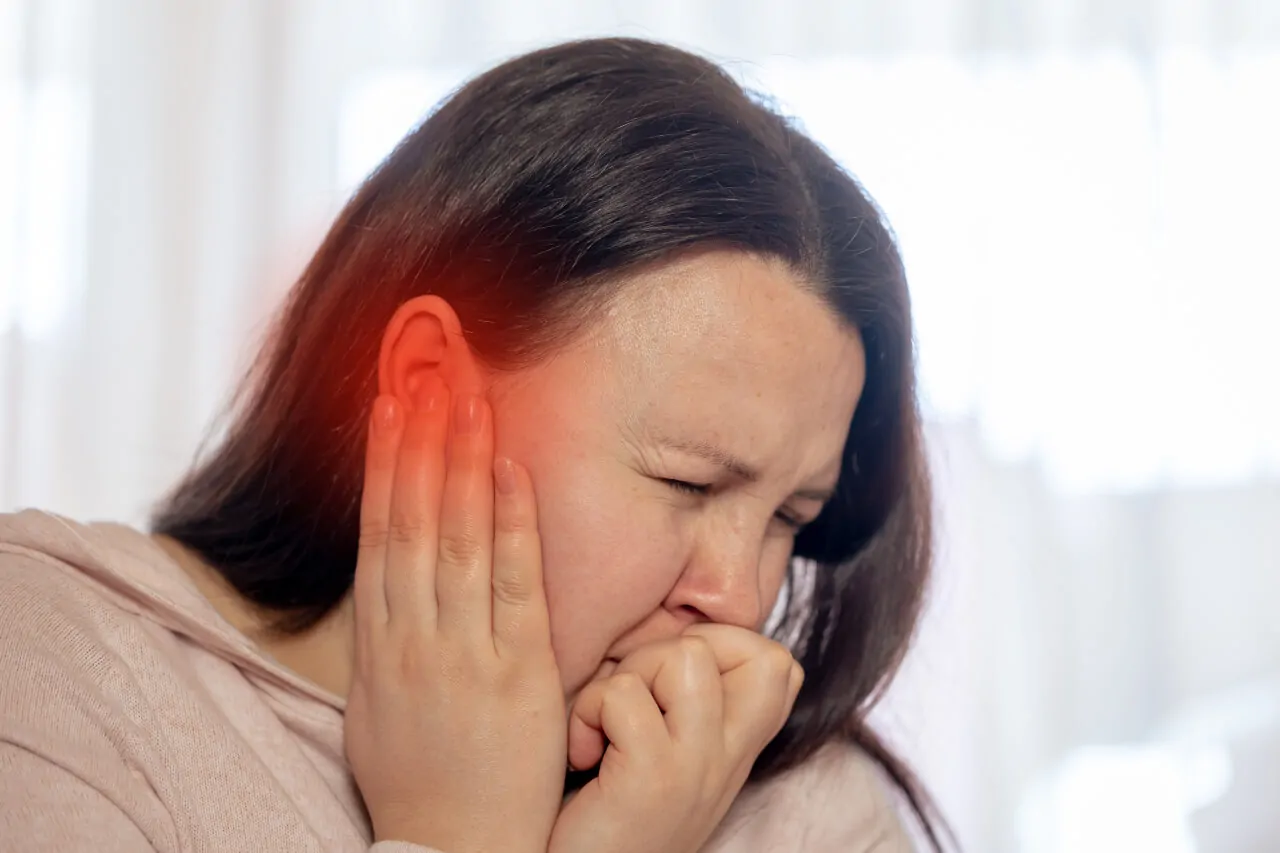An earache can be a distressing and uncomfortable experience, affecting people of all ages. It is often a symptom of an underlying condition that requires attention and appropriate treatment. Understanding the causes, recognizing the symptoms, and exploring the available treatment options for earaches are essential for prompt relief and effective management.
Some of the possible causes of earaches are:
Otitis media: This is an infection of the middle ear, which is the space behind the eardrum. It can be caused by bacteria or viruses, and it often occurs after a cold or flu. Otitis media can cause pain, fever, hearing loss, and fluid drainage from the ear.
Otitis externa: This is an infection of the outer ear canal, which is the tube that connects the ear to the outside. It can be caused by bacteria or fungi, and it often occurs after swimming or using earbuds. Otitis externa can cause pain, itching, swelling, and discharge from the ear.
Earwax buildup: This is when too much earwax accumulates in the ear canal and blocks the eardrum. Earwax is a natural substance that protects the ear from dust and infections, but sometimes it can become hard and dry. Earwax buildup can cause pain, hearing loss, ringing in the ear, and dizziness.
Ear injury: This is when the ear is damaged by trauma, such as a blow to the head, a foreign object in the ear, or a loud noise. Ear injury can cause pain, bleeding, bruising, and hearing loss.
Sinus infection: This is an infection of the sinuses, which are air-filled cavities in the skull. It can be caused by bacteria or viruses, and it often occurs after a cold or allergy. Sinus infection can cause pain, pressure, and congestion in the face and ears.
Temporomandibular joint (TMJ) disorder: This is a condition that affects the jaw joint and the muscles that control it. It can be caused by stress, teeth grinding, arthritis, or injury. TMJ disorder can cause pain, stiffness, clicking, and popping in the jaw and ears.
Some of the common symptoms of earaches are:
Pain: This is the most obvious symptom of an earache. The pain can range from mild to severe, and it can affect one or both ears. The pain may be constant or intermittent, and it may worsen when chewing, swallowing, or lying down.
Hearing loss: This is when the ability to hear sounds is reduced or impaired. Hearing loss can be temporary or permanent, and it can affect one or both ears. Hearing loss may be accompanied by ringing, buzzing, or hissing in the ear.
Fever: This is when the body temperature rises above normal levels. Fever is a sign of infection or inflammation in the body. Fever may cause chills, sweating, headache, and fatigue.
Discharge: This is when fluid leaks out of the ear. Discharge can be clear, yellow, green, brown, or bloody. Discharge may indicate an infection or injury in the ear.
Swelling: This is when the ear becomes enlarged or inflamed. Swelling can affect the outer ear or the inner ear. Swelling may cause redness, warmth, and tenderness in the ear.
Some of the treatment options for earaches are:
Home remedies: These are simple measures that can help relieve pain and discomfort at home. Some home remedies for earaches are:
- Applying a warm compress or a heating pad to the affected ear
- Taking over-the-counter pain relievers such as ibuprofen or acetaminophen
- Using over-the-counter ear drops such as olive oil or hydrogen peroxide
- Gently cleaning the outer ear with a cotton swab or a soft cloth
- Chewing gum or yawning to relieve pressure in the middle ear
- Elevating the head while sleeping to reduce congestion
Medical treatment: These are treatments that require a doctor’s prescription or intervention. Some medical treatments for earaches are:
Antibiotics: These are drugs that kill bacteria that cause infections. Antibiotics are usually taken orally or applied as drops in the ear.
Antifungals: These are drugs that kill fungi that cause infections. Antifungals are usually applied as drops in the ear.
Steroids: These are drugs that reduce inflammation and swelling. Steroids are usually taken orally or injected into the ear.
Decongestants: These are drugs that shrink the blood vessels and reduce congestion in the nose and sinuses. Decongestants are usually taken orally or sprayed into the nose.
Antihistamines: These are drugs that block the effects of histamine, a chemical that causes allergic reactions. Antihistamines are usually taken orally or sprayed into the nose.
Surgery: This is a procedure that involves making an incision or a hole in the eardrum to drain fluid or remove a foreign object. Surgery is usually performed under local or general anesthesia.
Earaches are common and usually not serious, but they can be very painful and annoying. If you have an earache, you should consult your doctor if:
- The pain is severe or lasts more than a few days
- You have a fever higher than 38°C (100.4°F)
- You have hearing loss or discharge from the ear
- You have a history of ear problems or a weakened immune system
- You suspect an injury or a foreign object in the ear
Conclusion
Earaches can be a distressing and uncomfortable experience, but understanding their causes, recognizing the symptoms, and knowing the available treatment options can help alleviate pain and promote healing.
Recognizing the symptoms of an earache, such as ear pain, temporary hearing loss, fever, and drainage from the ear, is key to addressing the underlying cause effectively.
Prompt attention to these symptoms can help prevent complications and ensure timely relief.
Prevention is key in maintaining ear health. By practicing good hygiene, avoiding exposure to excessive noise or irritants, and addressing underlying medical conditions, you can reduce the risk of experiencing earaches.
Overall, while earaches can be a source of discomfort, they are usually manageable with proper care. By staying informed, seeking appropriate medical attention when needed, and taking preventive measures, you can promote ear health and well-being for yourself and those around you.
FAQs
What are the common causes of an earache?
Earaches can have various causes, including ear infections (such as otitis media), swimmer’s ear (external otitis), impacted earwax, sinus infections, changes in air pressure (during flights or scuba diving), temporomandibular joint (TMJ) disorders, and referred pain from dental problems.
What are the typical symptoms of an earache?
Symptoms of an earache may include pain or discomfort in the ear, a feeling of fullness or pressure in the ear, hearing loss or muffled hearing, itching in the ear, discharge or fluid drainage from the ear, and occasionally fever.
Can earaches occur in adults and children?
Yes, earaches can affect individuals of all ages. Children are more prone to ear infections due to their smaller Eustachian tubes, which can easily get blocked or infected. However, adults can also experience earaches due to various causes, such as infections or sinus issues.
When should I seek medical attention for an earache?
It is recommended to seek medical attention if the earache is severe, persistent, or accompanied by high fever, severe headache, dizziness, or facial weakness. Additionally, if there is discharge or blood coming from the ear, it is crucial to consult a healthcare professional.
How are earaches diagnosed?
Diagnosis of an earache typically involves a physical examination of the ear by a healthcare professional. They may use an otoscope to inspect the ear canal and eardrum for signs of infection, inflammation, or blockages. In some cases, additional tests, such as a tympanometry or a culture of the ear discharge, may be conducted.





